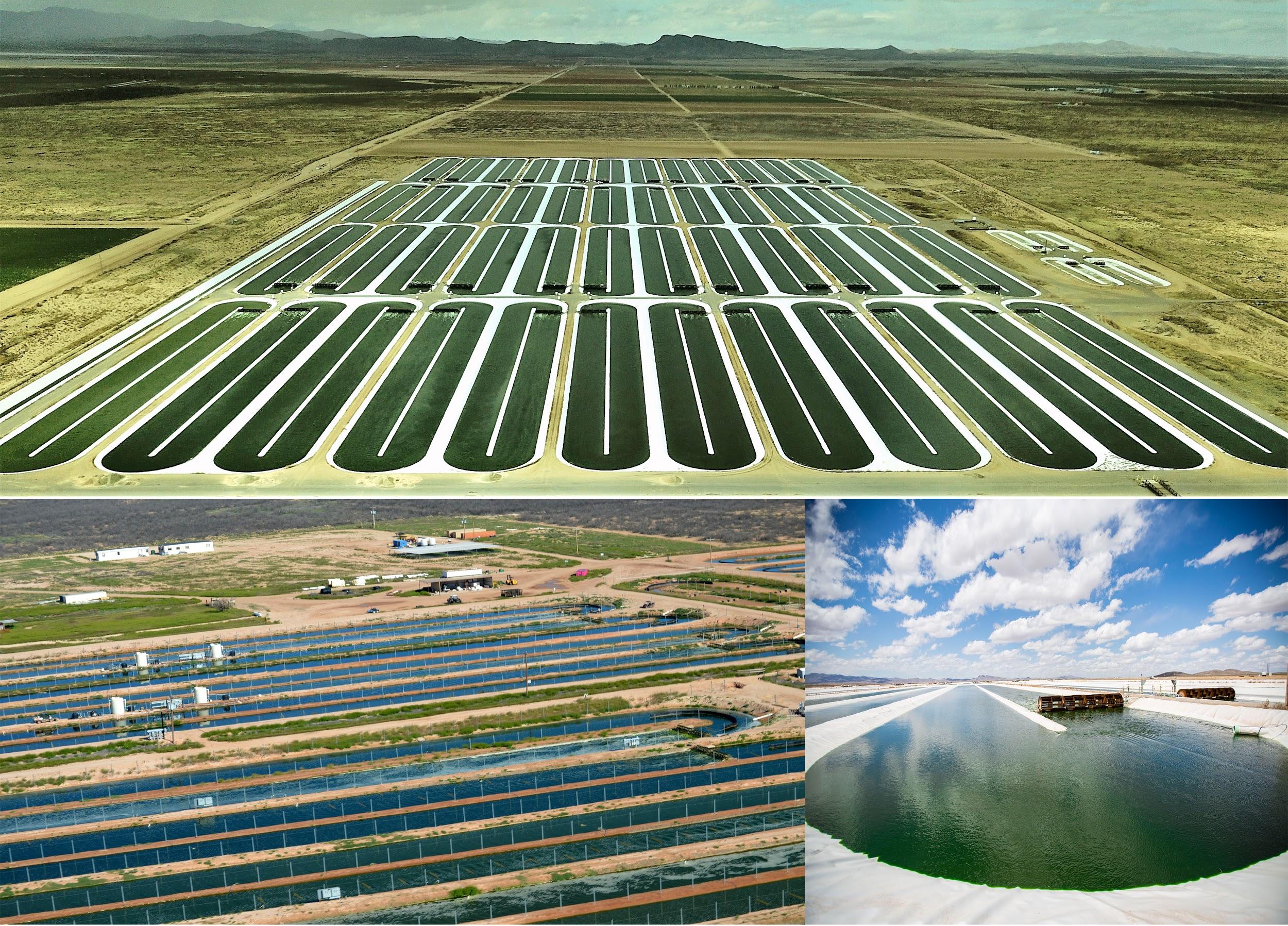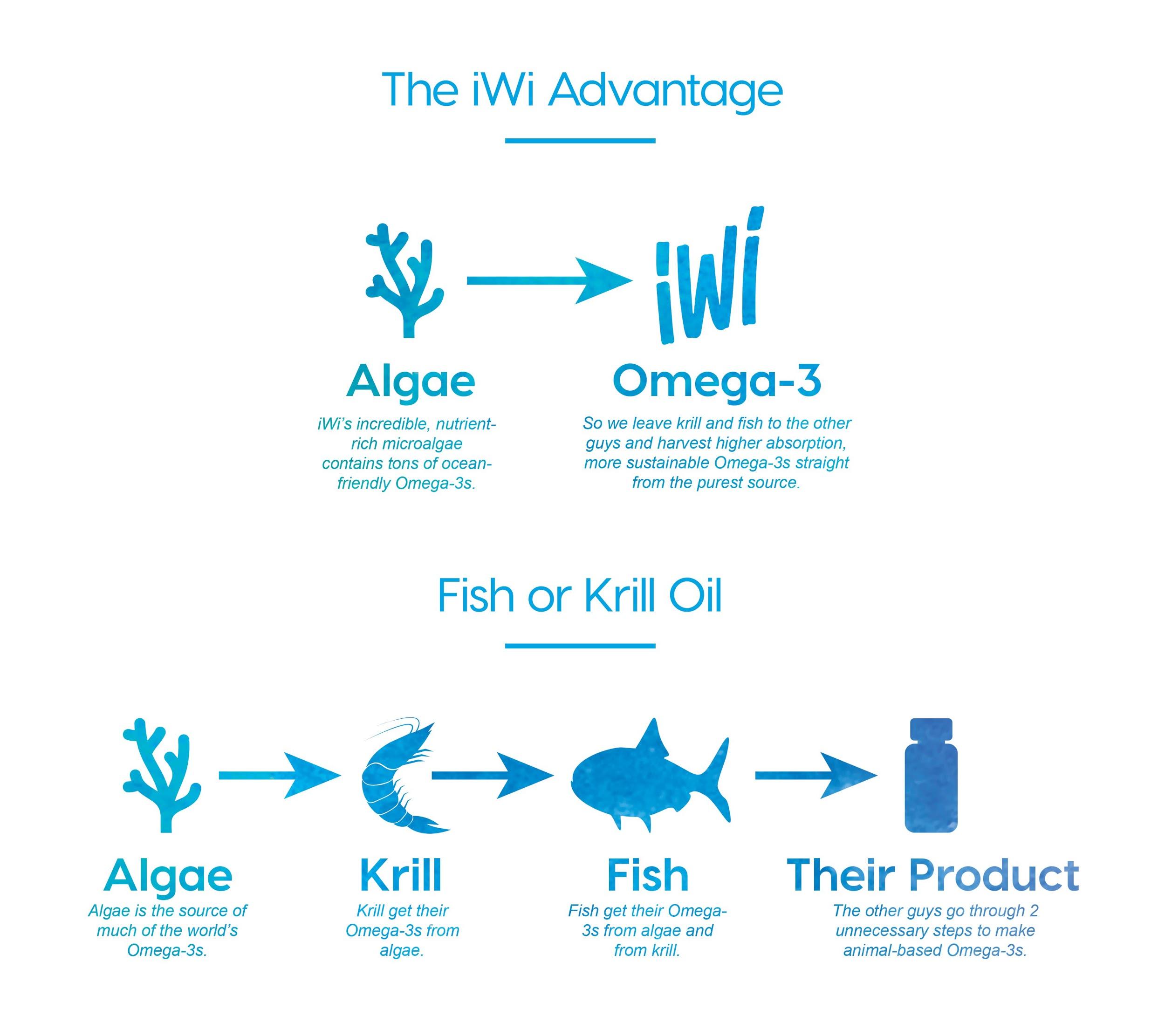Plant-based nutrition is a global and growing movement, with millions of people worldwide now adhering to a vegetarian or vegan diet.
For some, this is lifestyle, for others, a fashionable new trend, and for many more – a life changing and life ‘saving’ health choice. Regardless of the motivation, the stakes for the movement are high – with the world population growing from 7.5 to 10 billion people by 2050, we need alternative sources of nutrition to feed this population while respecting our planet.
 Image from iWi
Image from iWiOne of the global systems that stands to benefit from plant-based nutrition is the ocean, which holds some of the most important – and fragile – ecosystems on the planet. The ocean needs our help – overfishing and other human activity disrupting marine ecosystems, agricultural run-off, and the impacts of climate change are immediate threats. Krill (small crustaceans found in all of the world’s oceans) in particular are in danger and, without action, marine life – especially in the Antarctic – will continue to decline.
I’ve long believed we can find a way to address this challenge of providing nutrition to our global population. Recently we found a potential solution in one of the smallest organisms on the planet: microalgae. At iWi, we are farming this amazing crop in the southwestern US to produce nutritional products in a radically sustainable way, while having zero impact on the fragile marine ecosystems we most need to protect. Why are we focused on algae? Simply put, it’s the most impressive crop we’ve ever seen.
 Image from iWi
Image from iWi
After farming over 700 million pounds of vegetables per year, algae beat them all, both in terms of nutritional profile (it’s packed with nutrients and protein) and actual yield (with algae, we get a new crop every day).
To grow our algae, we use resources that otherwise would not be utilised. We consume CO2 and convert it into oxygen, and we use non-fertile land and salty (brackish) water. Since we operate in sparsely populated areas, we’re able to create jobs in small rural communities in areas like West Texas and South New Mexico. We are about 300 times more productive per acre than peas in term of essential amino acids, and we use substantially less fresh water to grow them. We also recycle over 95 per cent of the water we use, allowing us to recover the salts and nutrients, and further limit our impact on the environment. We’re also making sure that our by-products are used in other processes.
Beyond its impressive profile as a crop, there’s another important reason for us to be so excited about this technology and the algae nutritional platform iWi is creating worldwide, that is – we can produce traditionally marine products without having an impact on marine ecosystems. One example is omega-3s.
 Image from iWi
Image from iWi
Many people don’t know that fish and krill do not naturally generate the omega-3s they are so famous for – they get them from the algae they eat through their life. We extract omega-3 oil directly from algae and we skip the middle fish, literally. In addition to providing vegan, sustainable omega-3s, our algae-based oil is the only omega-3 with glycolipids and phospholipids (together, they are “polar lipids”), which provide our product with the highest bioavailability of all omega-3s.
At iWi, our purpose is to ‘create sustainable food solutions for everyone and our planet’. We’re just at the start of our journey and are committed to tackling the problem of overfishing by producing a sustainable alternative to marine-based omega-3s. By going straight to the source and getting our omega-3s from algae, we are protecting sensitive fish and krill populations, while also helping inland communities play a central role in conserving the ocean.
As we work to build the future of farming, the beauty of our platform is that we’re not proposing an alternative to conventional agriculture – rather we’re creating an addition to conventional farming, and doing so by using renewable resources.
This post is part of a series produced by Virgin Unite in partnership with Ocean Unite, an initiative to unite and activate powerful voices for ocean-conservation action.
















